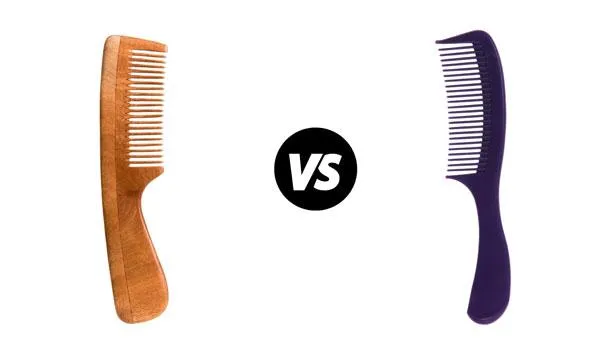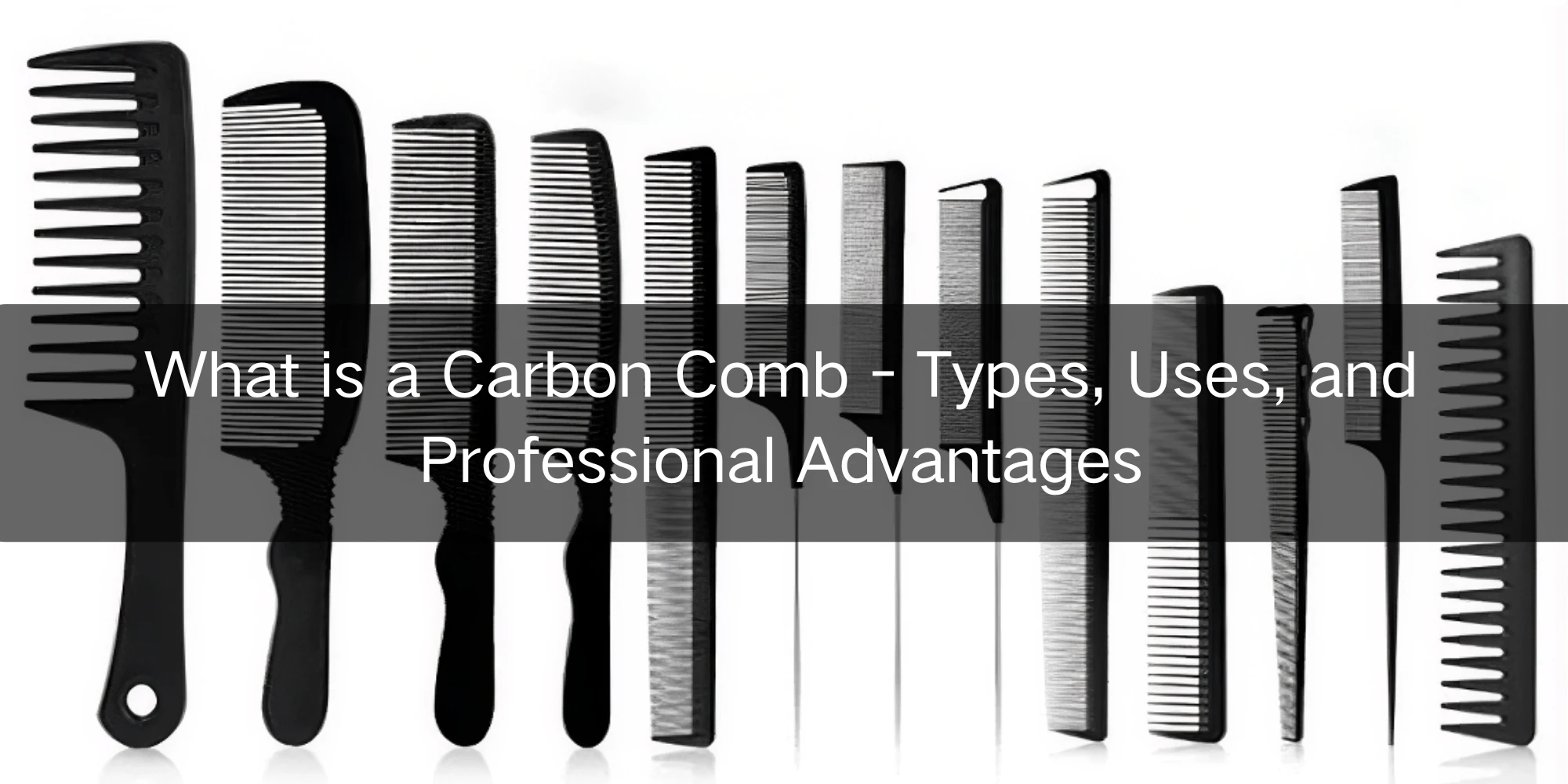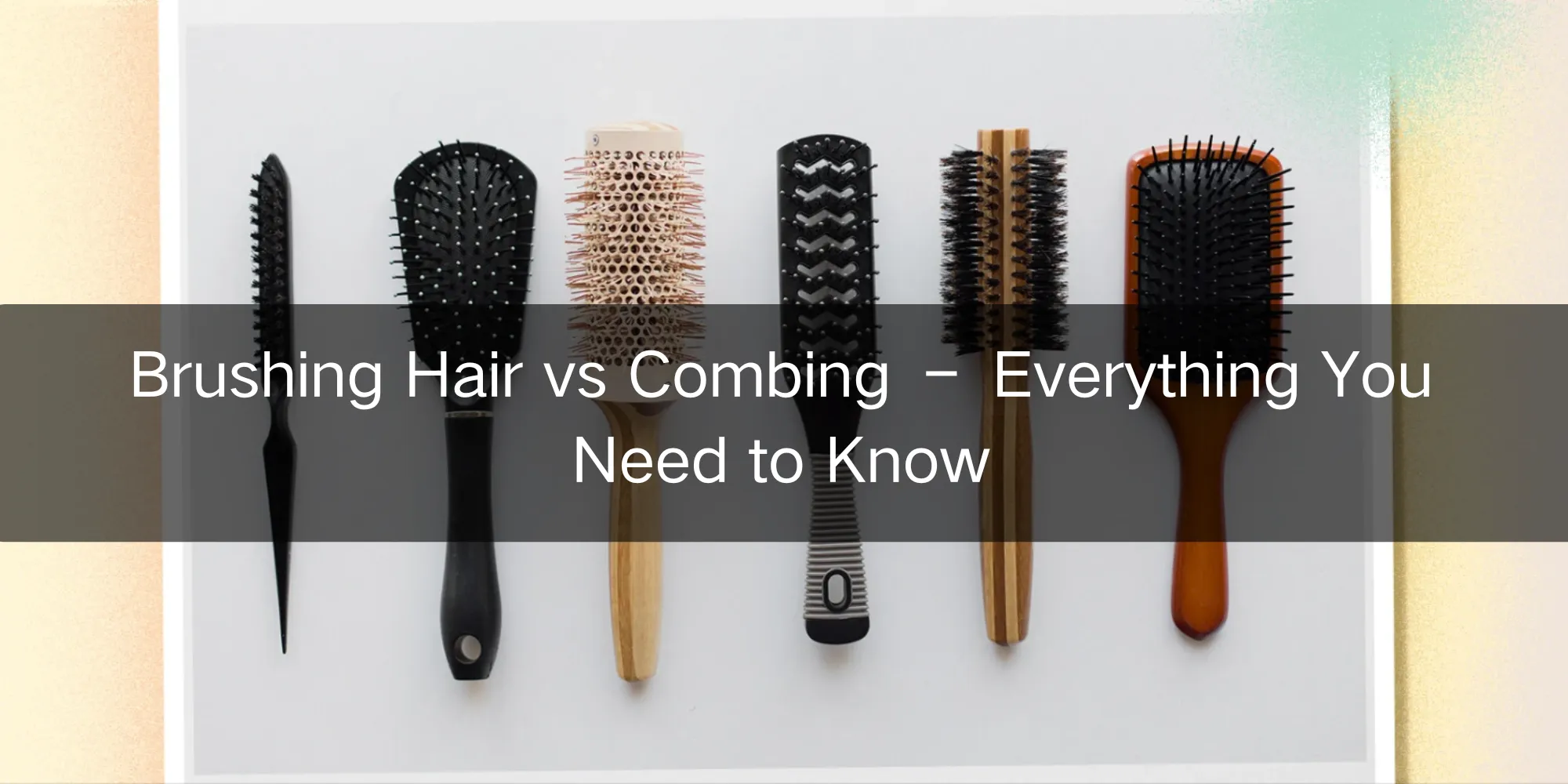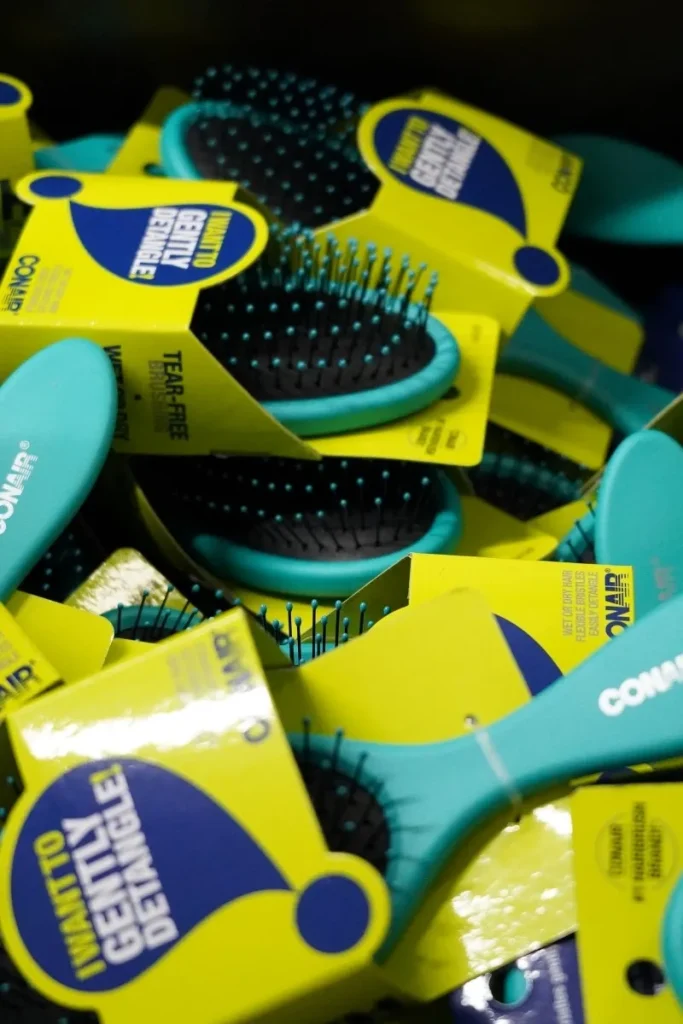Choosing the right comb isn’t only about removing tangles; it gives your hair a particular feel and look. You know the comb material can greatly influence your hair’s health, its texture as well as your environment. By knowing the benefits of wooden combs and plastic combs, you will be able to make the right choice. Let’s delve into the differences and find out which comb suits your hair type or your way of life better!
1) Material and Durability: Wooden comb vs Plastic
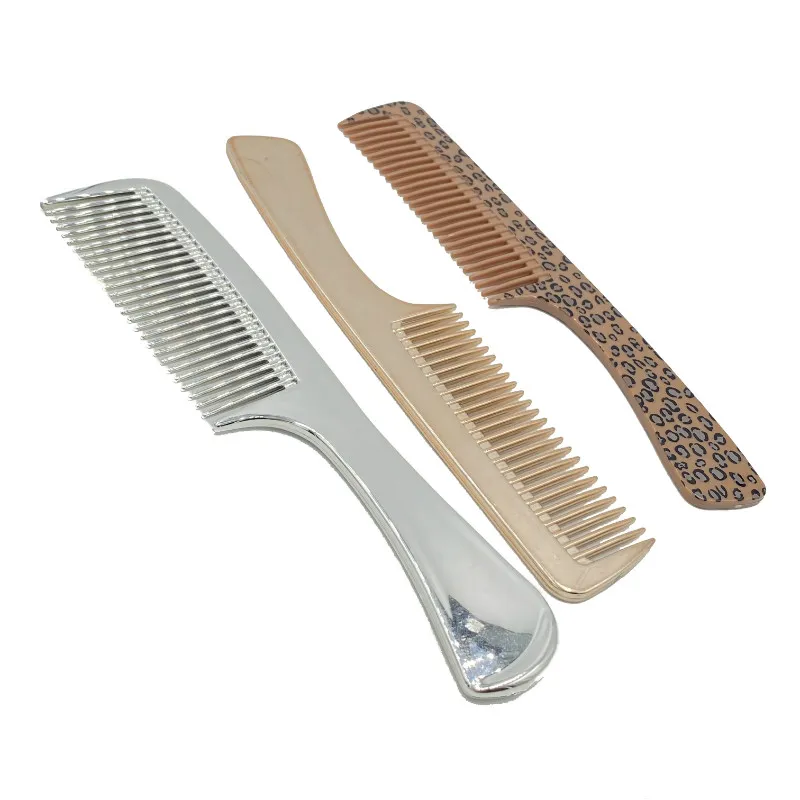
Plastic combs
Are constructed from synthetic materials such as acrylic or nylon. They are quite light in weight and flexible. However, they can be splitted when dropped again and again. Moreover, with the passage of time, the teeth of a plastic comb can turn into sharp cutting edges which may damage your scalp.
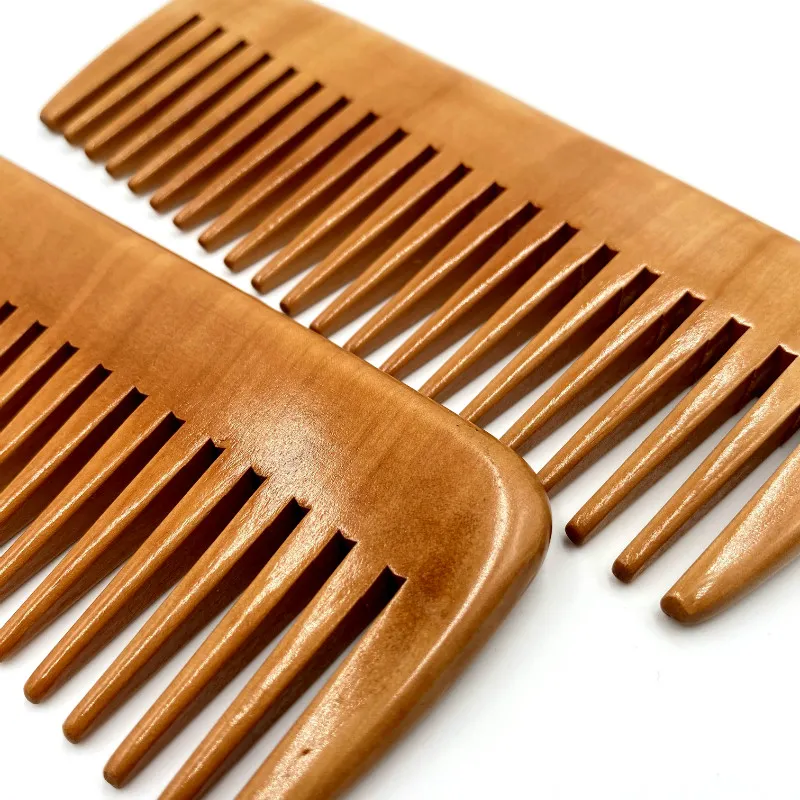
Wooden combs
Are the result of the handcrafted procedures and are made from naturally occurring materials like neem or sandal timber. They are quite strong and do last for a long period of time if taken good proper care of.
➔ Outcome:
Wooden combs are victorious in this case because of their longevity and also they do not cause any damage to the scalp.
2) Frizz and Smoothness: Plastic comb vs. Wooden comb

Plastic combs
While combing, you might have noticed your hair strands rubbing against the comb that cause the hair to frizzle ( not smooth), right? This occurs because plastics trap electrons. When you comb your hair with plastic, it charges your hair strands positively. Just like how magnets repel each other, the similarly charged hair strands push away from each other, causing that annoying frizz.
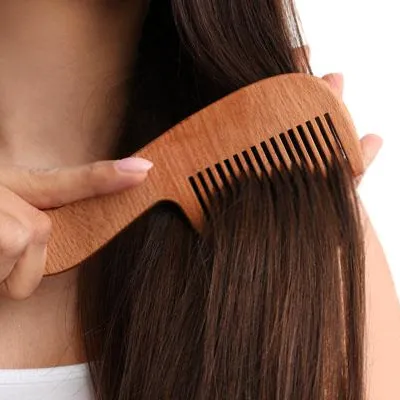
Wooden Combs
Wood is a bad electric conductor, so there is no static generated when it is used. As a result, when the wooden comb is slowly moved through your hair, you hair remains smooth and neat.
➔ Outcome:
Thus, wooden combs will be better suited if you are looking to have your hair smooth and neat.
3) Scalp Health and Blood Circulation: Wood vs plastic comb
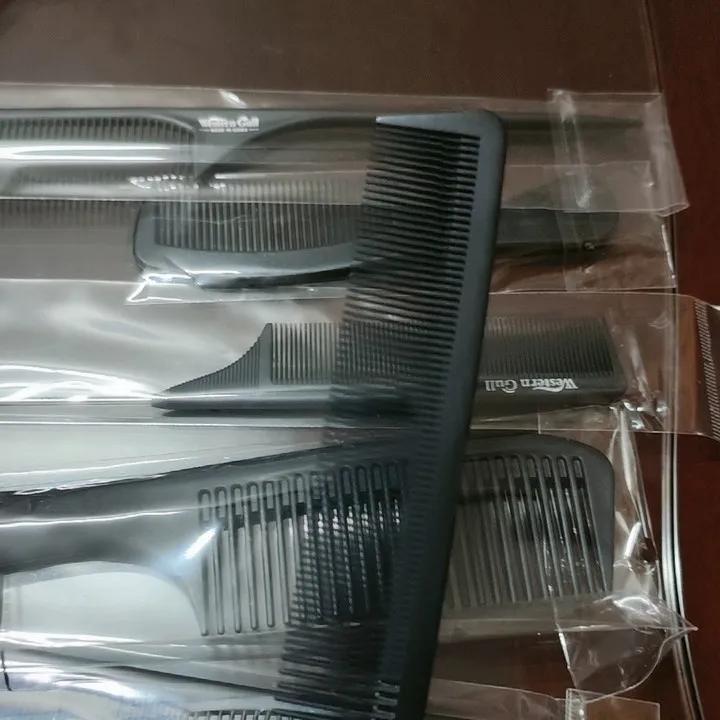
Plastic combs
The teeth of plastic combs can be too sharp and rigid. As a result, it can irritate the scalp as well as cause micro-scratching which can lead to dandruff or slight infection. Furthermore, plastic as a material does not provide the kind of stimulation that the scalp could truly benefit from.
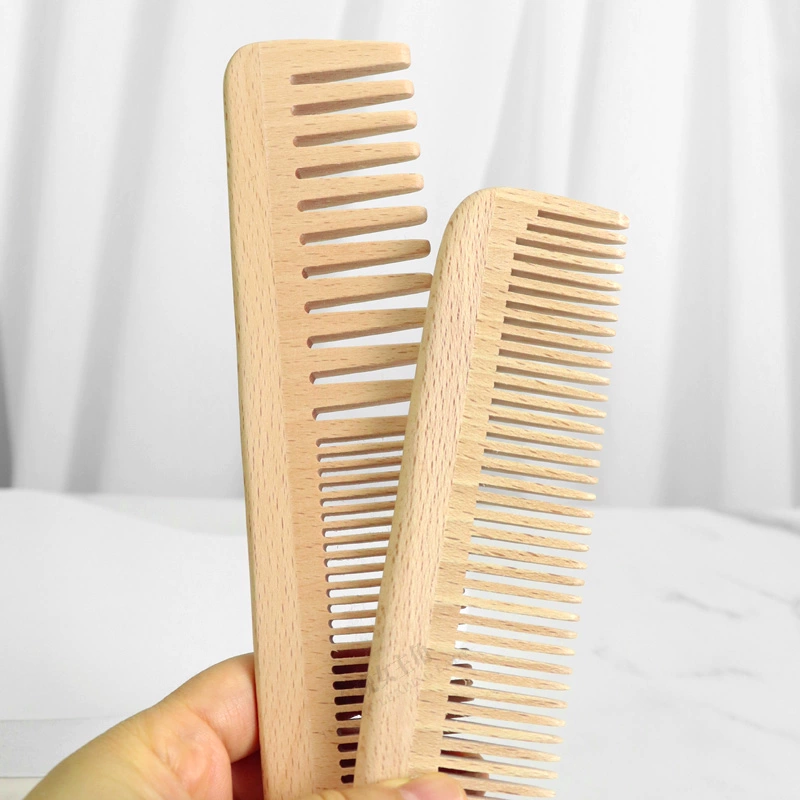
Wooden Combs
Scalp irritation does not occur when using wooden combs because of their ergonomically shaped rounded teeth. Combing with wood comb wipes away residues and provides slight massages to the scalp which helps maintain blood circulation.
Enhanced circulation ensures that the hair follicles get adequate blood supply rich in nutrients and oxygen which guarantee better and stronger hair regrowth. A few wooden combs including the neem wood comb even protect the scalp by not allowing the build-up of bacteria.
➔ Outcome:
Wooden combs are the most effective tools for enhancing scalp health and ensuring perfect hair growth.
4) Eco-Friendliness: Wood comb vs plastic

Plastic combs
Are composed of petroleum-based components which take centuries to decompose. Once thrown into the ocean or a landfill, these materials contribute to pollution on a global scale. In addition, their manufacturing processes emit toxic pollutants into air and water resources.
Wooden Combs
Wooden combs also serve as a great gift because they are made with a substantial amount of care, are energy efficient, and are finely crafted from natural fiber composites.
➔ Outcome:
There’s no doubt that wooden combs are the best option available for those trying to protect the environment along with styling their hair.
5) Hair Texture and Shine: Wooden vs plastic comb
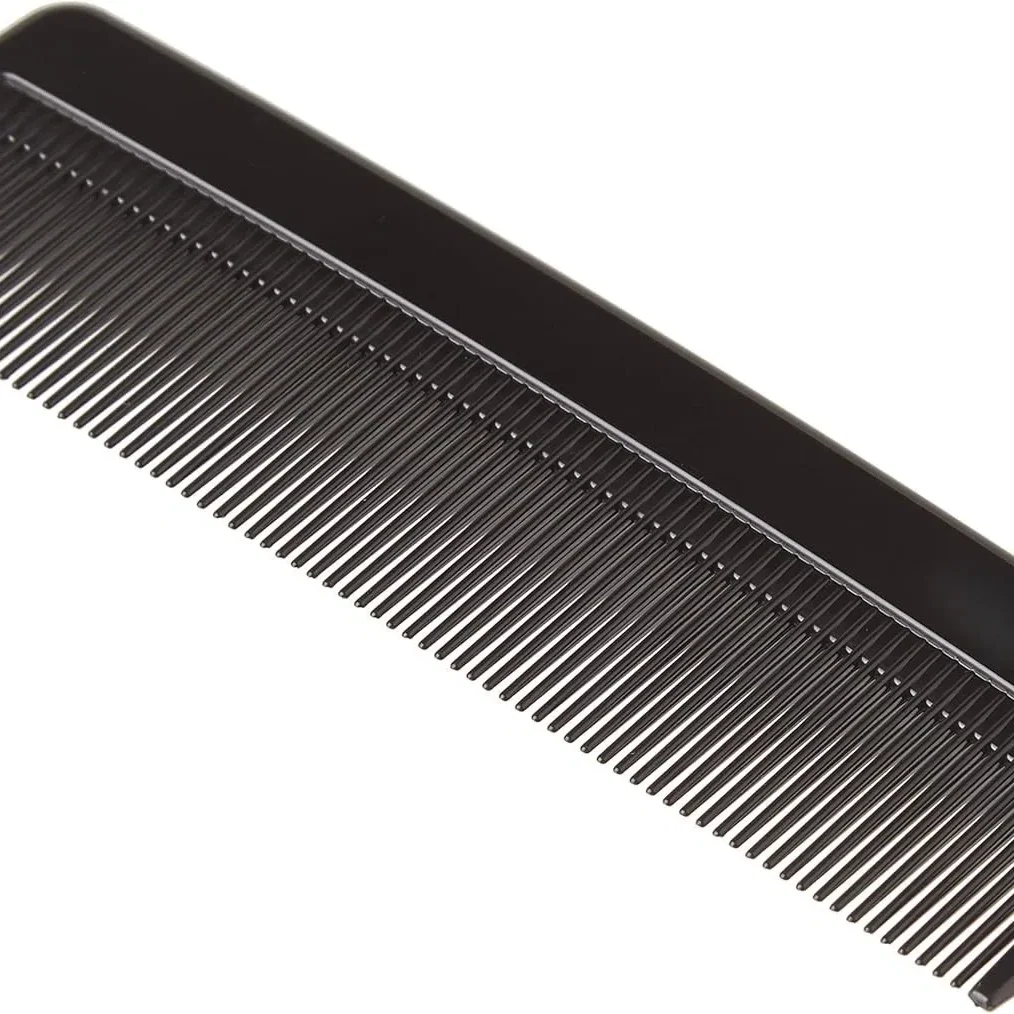
Plastic combs
Sebum, a natural oil generated by the scalp is crucial to protect as well as moisturize hair. But, plastic combs don’t effectively distribute the natural oils from the scalp which mostly remain at the hair roots and leave the rest of the hair dry. Moreover, the teeth of plastic combs tend to be sharp and can worsen the effects of cuticle damage which strengthens the hair.
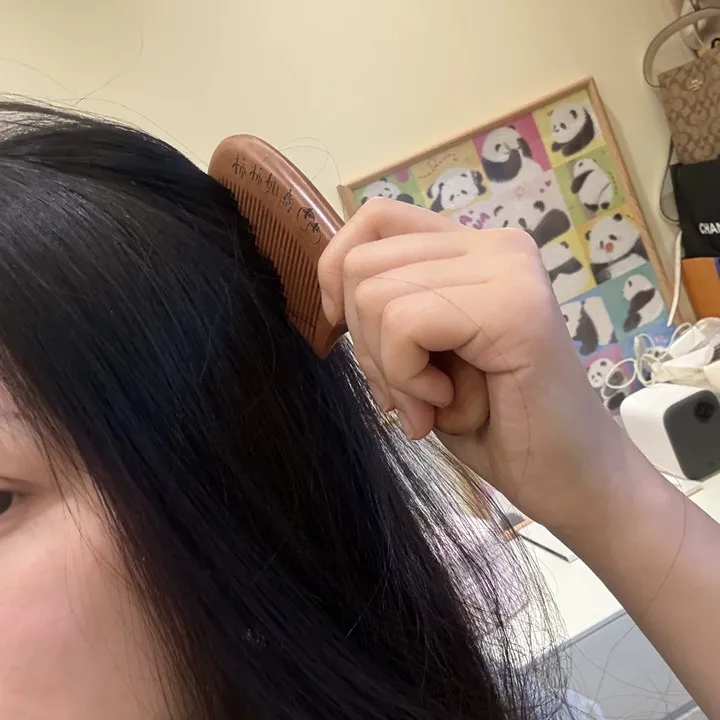
Wooden Combs
Facilitate natural oil distribution that keeps the hair hydrated and looking healthy. Thus, it keeps your hair moisturized and makes it shiny too. Moreover, the smooth teeth of a wooden comb are gentle on the hair cuticle, thus stopping breakage and split ends.
➔ Outcome:
Hence, if you have a wooden comb, it should be easy to maintain soft, shiny and healthy hair.
6) Cost and Availability: Wooden comb vs plastic comb
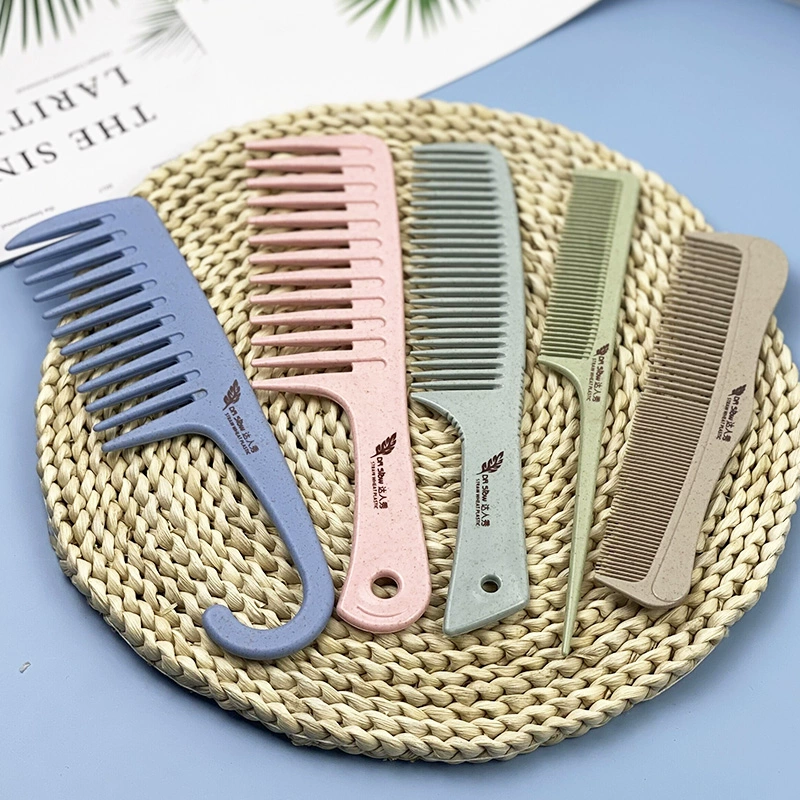
Plastic combs
Plastic combs can be found at virtually every supermarket and are incredibly economical since they are manufactured in bulk for a very low price. These plastic combs come in all possible forms, colors, and sizes, which is good for quick buying. However, as is common with most anything that comes in low prices, the quality tends to be substandard.

Wooden Combs
Wooden Combs Unlike plastic combs, wooden combs are rather rare to come across and can be fairly costly because of the fact that they are handcrafted and constructed of natural materials. The good news is that you don’t have to search too hard for their wooden counterparts; they can easily be found online or in eco-friendly shops.
➔ Outcome:
Thus, if you are operating with a budget and are low on funds, plastic combs make the most sense.
7) Maintenance and Hygiene: Wooden comb vs plastic
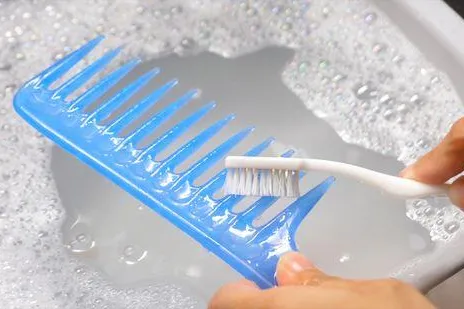
Plastic combs
These combs are quite easy to maintain as they can be washed out in water or wiped with a cloth. They withstand all kinds of cleaning but scratches on the surface could trap dirt and some bacteria which when leftover time, makes them less hygienic.
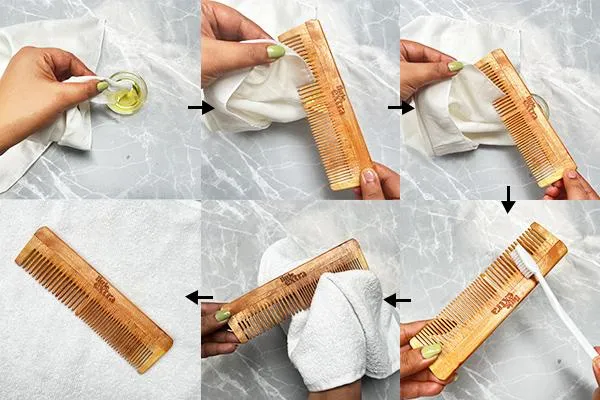
Wooden combs
All they need in terms of maintenance is a cloth wipe as soaking them would damage the wooden comb's structure. All the wooden combs on the other hand have micro grooves that help the bacteria hide. But thanks to Neem wood, which is considered best wood for combs, has some antibacterial property that helps ensure bacteria bacteria-free comb.
➔ Outcome:
If we compare and evaluate their cleanliness upkeep, plastic combs do seem to take the victory.
Comparison table
Plastic combs |
Wooden combs |
Winner | |
Material & Durability | ● Lightweight but prone to cracks | ● Sturdy, long-lasting | ● Wooden combs |
Frizz & Smoothness | ● Causes frizz, creates static | ● No frizz keeps hair smooth | ● Wooden combs |
Scalp Health | ● Can scratch and irritate | ● Gentle, promotes circulation | ● Wooden combs |
Eco-Friendliness | ● Non-biodegradable, harmful to the planet | ● Biodegradable, eco-friendly | ● Wooden combs |
Hair Texture & Shine | ● Uneven oil distribution | ● Spreads natural oils evenly | ● Wooden combs |
Cost & Availability | ● Cheap, widely available | ● Pricier, less common | ● Plastic combs |
Maintenance & Hygiene | ● Easy to clean, but traps bacteria | ● Requires care, stays clean longer | ● Plastic combs and wooden combs are safer with proper care |
Want to Customize Wooden Hair Brushes—Contact us now
Final Words
Combs are more than mere tools; they interplay with your scalp, hair, and even your environment. If hair care and eco-friendliness are your top goals, perhaps wooden combs are the perfect solution for you.
It is true that plastic combs are cheap and available to many, but in the long run their resultant problems make them less useful and not really friendly to nature. By choosing a wooden comb, you are not just choosing what is best for your hair, but what is best for the ecosystem as well. Now, the decision is yours!
Final Words
i) Are wooden combs good for hair growth?
As we know increased blood circulation does in fact lead to healthier hair, so, yes, by massaging the scalp with wooden combs it is very likely they help to promote hair growth.
ii) Is it okay if I use a wooden comb for my wet hair?
ii) Is it okay if I use a wooden comb for my wet hair?

